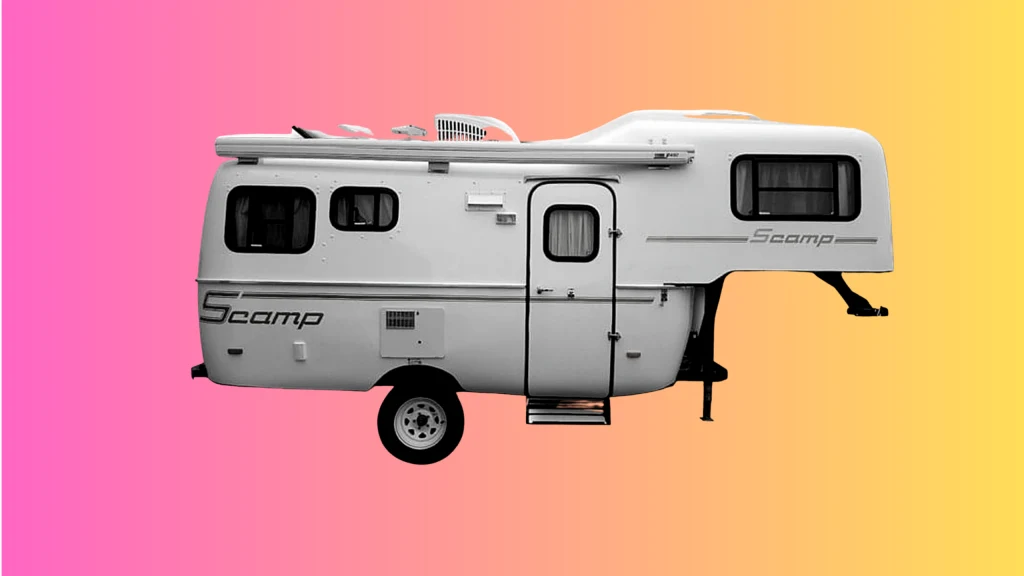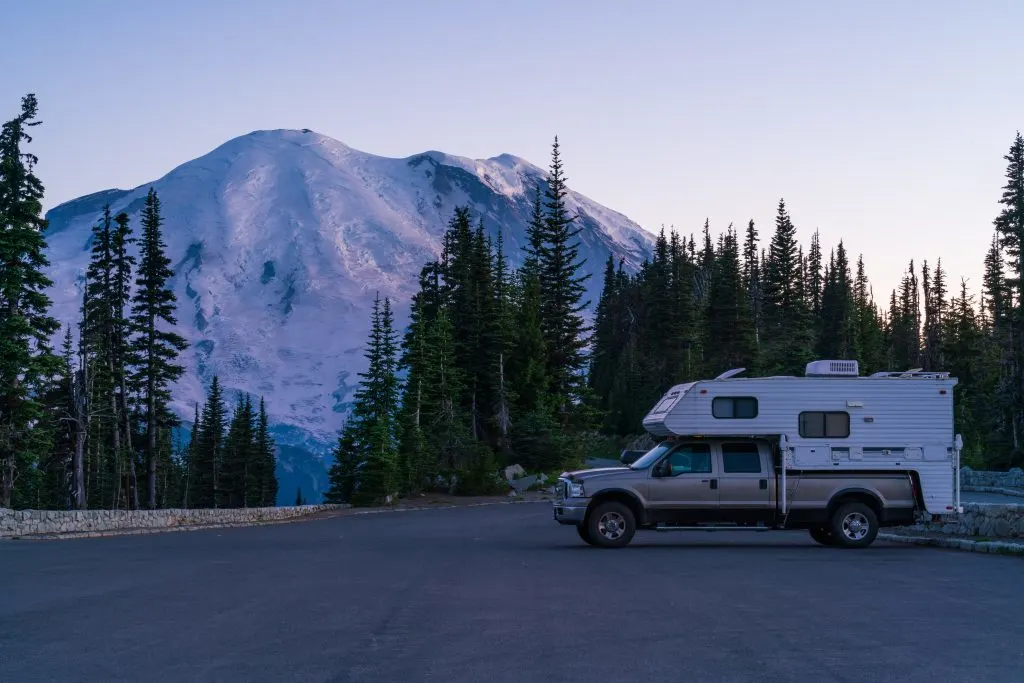Have you ever wondered about the pros and cons of small RVs?
Since the RV lifestyle continues to gain popularity among all types of people, we thought diving deeper into some of the drawbacks of owning these kinds of RVs might be beneficial. There’s a chance after reading this article that you might want to reconsider your options.
Whether you’re new to RVing or are an avid traveler, choosing to downsize to a more compact RV comes with its pluses and minuses.
This article examines five different aspects to contemplate when selecting which RV size is right for you. Let’s take a comprehensive look at a few benefits in addition to what we believe are five reasons to avoid small RVs.
Benefits of Small RVs
Although this article primarily focuses on some of the reasons we believe you should avoid small RVs, as some of us might agree, there’s often an upside to every downside.
For example, two apparent benefits include a less expensive cost and a more manageable towing factor when compared to more moderate and massively sized RVs. Indeed, the lower price tag and lighter weight can be highly appealing when deciding what type of RV you’d like to travel in.
Furthermore, similar to modest sticks and brick homes, less living space to maintain within the RV can be tempting as well. Many of us might agree that the less time you spend caring for your home, the more time you gain for activities you enjoy.
If you’re set on a small RV: Here’s a list of the best small RVs in the USA.
5 Reasons to Avoid Small RVs
Now that we’ve explored a few of the highlights as to why you should evaluate the benefits of small RVs, let’s jump into five reasons that might leave you thinking twice about purchasing that extra tiny home on wheels.

1. Little To No Storage Space
There are a couple of factors to ponder when you find yourself in the market for an RV.
First, the types and quantity of travelers will significantly impact how much storage space you will need in your RV. For example, a family of four or larger, with animals, would likely require a substantial amount of storage. In contrast, it would be a reasonable assumption that a set of two young travelers would need a minimal supply of adequate storage.
In addition to answering the questions of ‘who’ and ‘how many’ of your RV travels, deciphering which items are necessary to have on hand for each traveler is critical.
Keep in mind: An RV Mechanic points out the RV systems that will break first.
2. Small Space Means Constant Rearranging
Anytime you’re working with a confined space, getting creative with your design skills can be tricky. How creative can you get in a few hundred sq ft of space? You might surprise yourself.
The simple act of repositioning items throughout your RV can often make a drastic difference. Imagine what your space might look like if you swapped out wall decor in the bedroom with the bathroom. Or, perhaps the hanging plants in your kitchen will get more sunlight hanging over the back corner of the recliners in your main living area.
You might be amazed at how a basic, uncomplicated furniture conversion can completely transform a limited space. If equipped with a separate dining area, many small RVs have the capability of becoming a space to sleep. By performing a few essential steps, you can revamp the dinette area to serve as a place to eat or sleep within minutes.
Pro Tip: Here are some great RV storage hacks.

3. Small Holding Tanks
An additional drawback to small RVs is their small holding tanks. Not all RVs are created equal, nor are their various accouterments on board.
Along with the minimal amount of space on the camper’s interior, it is worth mentioning the holding tanks on these rigs are designed to hold a nominal amount of liquid. Keeping track of the levels at which your tanks are at all times is crucial to preventing possible overflow, embarrassment, and damage to your RV or others.
Due to the finite capacity of water these tanks can hold, that can pose an inconvenience for some RVers. Less tank storage space means more frequent trips to dump and empty your tanks, resulting in less time for adventure, exploration, and travel.
Did you know: You can dump RV tanks at home.
4. Smaller or Non-Existent Bathrooms
Frequently regarded as a deciding factor for some people, having a bathroom on board your RV is imperative. As a courtesy, you might want to approach your RV search mindful that the smaller the RV typically equates to less area designated for a bathroom. And sometimes, you might come across an RV with no restroom at all.
One of the perks of traveling in an RV for leisure or choice in lifestyle is the advantage of not having to use public restrooms. There’s a possibility that for many people that revel in the RV way of living, having the comfort and convenience of using their own private bathroom is often a motivating factor.
However, suppose this element of an RV is essential to you. In that case, we recommend broadening your search and being open to alternate styles of small RVs or a different type of RV altogether.
Pro Tip: Many small RVs have wet baths, here’s the dirty truth about them.
5. No Fun in Inclement Weather
Hypothetically, what if you were planning to hike along the Appalachian Trail and gently take your time perusing the sights in your 20 ft camper.
Halfway into your first week of great adventure, you experience several consecutive days of unbearable weather conditions. What would you do? How would you adapt?
Where would you seek shelter if you have no awning and an inadequate amount of space inside the RV to protect yourself from the elements?
This final reason, along with the other four we mentioned above, are compelling items we believe are worth pondering before purchasing. Having a safe, secure location to protect you from mother nature during your travels is, without a doubt, an important safety measure to address before you begin traveling.

Are Small RVs Worth It?
As with nearly any part of life, there will always be benefits and drawbacks to many situations.
Small RVs are an appealing camper for solo travelers and small groups of travelers, such as a couple or family of three. They’re compact, nimble, and minimally designed. The places you can venture to are limitless, making them ideal for visiting virtually any location.
Reiterating our sentiments above, these kinds of RVs are confined and offer limited amenities. We recommend evaluating who you’re traveling with and whether you’re solo or accompanied by several other people.
Once you establish that, explore the needs of the people who will be traveling, and answering these questions will enable you to lay the groundwork for deciding if a small RV is right for you.
Discover the Best Free Camping Across the USA
To be honest with you, we hate paying for camping. There are so many free campsites in America (with complete privacy).
You should give it a try!
As a matter of fact, these free campsites are yours. Every time you pay federal taxes, you’re contributing to these lands.
Become a FREE CAMPING INSIDER and join the 100,000 campers who love to score the best site!
We’ll send you the 50 Best Free Campsites in the USA (one per state). Access the list by submitting your email below: